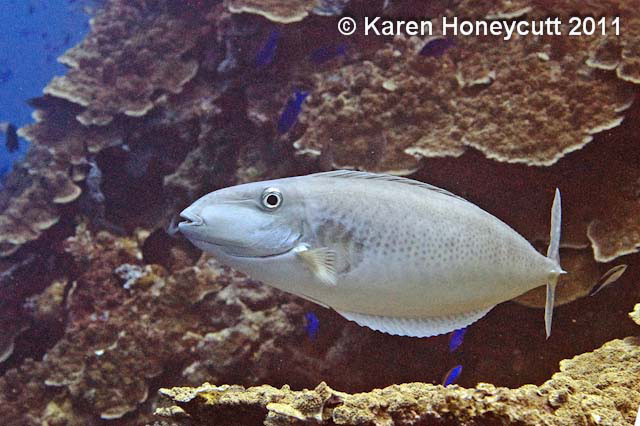| Acanthuridae (Surgeonfishes, tangs, unicornfishes), subfamily: Nasinae |
| 60 cm SL (male/unsexed) |
|
reef-associated; marine; depth range 20 - 50 m |
| Western Pacific: southern Honshu, Japan to the Great Barrier Reef and New Caledonia. Reported from the Similan Islands in the Andaman Sea and Guam. Recently recorded from Tonga (Ref. 53797). |
|
Dorsal spines (total): 5-5; Dorsal soft rays (total): 27-30; Anal spines: 2-2; Anal soft rays: 26-30. Lacks a horn, has numerous black close-set spots on the upper half of its body and tail, and is white ventrally. Body elongate, its depth 3.3 to 3.7 times in SL (Ref 9808).
Description: Characterized further by bluish grey body color, sometimes displays large whitish patch on side in area around pectoral fin; males assumes dark anterior body during courtship displays; caudal peduncle with pair of bony keels on caudal peduncle, without projecting points (Ref. 90102). |
| Inhabits coastal to outer reef slopes subject to strong currents. Sometimes in large schools (Ref. 48637). Generally uncommon species found in steep outer reef drop-offs (Ref. 9710). Usually found in waters deeper than 6 m. Feeds on zooplanktons (Ref. 90102). Solitary or in groups (Ref. 37816). |
|
Least Concern (LC); Date assessed: 06 May 2010 Ref. (130435)
|
| harmless |
Source and more info: www.fishbase.org. For personal, classroom, and other internal use only. Not for publication.
